About the Editors
Editor-in-Chief
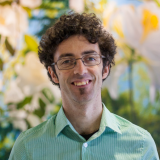 Marco Demaria, PhD
Marco Demaria, PhD
University Medical Center Groningen
European Institute for the Biology of Ageing (ERIBA)
Groningen, Netherlands
My research is focused on understanding the molecular basis of age-related dysfunctions and disorders, and to identify new molecular and cellular targets to improve health and longevity. At the core of my research is cellular senescence, a potent tumor suppressive mechanism characterized by a strong secretory and pro-inflammatory phenotype. In the past few years, I have developed and characterized a number of cellular and mouse models to evaluate the biological role of senescence in aging and disease. My group has demonstrated that the senescence phenotype is highly heterogeneous and dependent on a number of variables that include stressor, cell type, tissue of origin and time point, that senescent cells play a beneficial role during cutaneous wound healing but also that accumulate during aging and promote a number of age-related pathologies. These latter findings sparked my interest to identify pharmacological and nutraceutical approaches that can interfere with detrimental senescence in vivo, reduce pathologies and dysfunctions, and improve overall healthspan.
Managing Editor
 Nico Fanget, PhD
Nico Fanget, PhD
Nico obtained his PhD in bacteriology and molecular biology at Edinburgh Napier University. He then moved to scholarly publishing, first as staff editor at the Microbiology Society, then as copy editor at Nature. Nico joined the Nature partner Journals in 2016, and now manages four npj series titles.
He is based in London.
Associate Editors
 Dr Fabrisia Ambrosio, PhD
Dr Fabrisia Ambrosio, PhD
Physical Medicine & Rehabilitation, Harvard Medical School, Boston, USA
The overall goal of my translationally-oriented laboratory is to identify critical factors that dictate stem cell function and tissue regenerative capacity. Specifically, my laboratory uses murine and human systems to investigate the underlying mechanisms underlying stem cell dysfunction with increasing age.
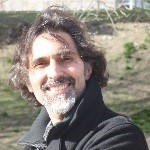 Dr J. Cesar Cardenas, PhD
Dr J. Cesar Cardenas, PhD
Center for Integrative Biology, Universidad Mayor and Geroscience Center for Brain Health and Metabolism
Santiago, Chile
For the past fifteen years we have been interested in understanding how calcium communication between the endoplasmic reticulum and the mitochondria regulate cellular processes such as transcription, proliferation, autophagy, bioenergetics and cellular metabolism important for the establishment and maintenance of cellular senescence and aging.
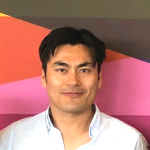 Evandro Fang, PhD
Evandro Fang, PhD
The University of Oslo
Oslo, Norway
Evandro Fei Fang is a molecular gerontologist working on the molecular mechanisms of ageing and the age-predisposed Alzheimer's disease. More specifically, the Fang lab are working on NAD+ metabolism, defective mitophagy in Alzheimer's disease and ageing, and the application of AI in novel drug development. His laboratory studies have been published in Nature Biomedical Engineering, Nature Ageing, Nature Neuroscience, Cell Metabolism, among others.
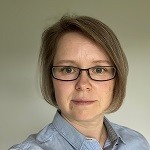 Diana Jurk, PhD
Diana Jurk, PhD
Mayo Clinic
Rochester, MN, USA
Diana Jurk is an Associate Professor of Physiology at Mayo Clinic. Her research investigates the molecular and cellular mechanisms underlying aging and age-related disorders caused by cellular dysfunction. These studies include age-related neurodegeneration such as dementia and obesity-associated disorders such as nonalcoholic fatty liver disease (NAFLD) and type 2 diabetes. Her main research interest is the study of senescence pathways to identify novel key players and drug targets.
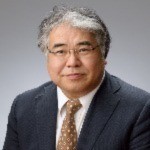 Hiroshi Kondoh, MD, PhD
Hiroshi Kondoh, MD, PhD
Kyoto University
Kyoto, Japan
We investigate the metabolic mechanisms relevant to aging and aging related diseases. We mainly study novel glycolytic regulation in cancer and senescence and metabolomic analysis in human blood of age-relevant diseases.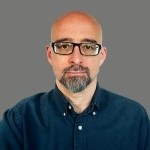 Salvador Macip, MD, PhD
Salvador Macip, MD, PhD
University of Leicester
Leicester, UK
Salvador Macip has been studying the pathways involved in ageing since 1998, when he joined as a postdoc the laboratory of Stuart Aaronson at Mount Sinai School of Medicine, NY. There, he contributed to define the involvement of p53, p21 and reactive oxygen species in senescence. Since 2008, he is the head of the Mechanisms of Cancer and Ageing Lab at the University of Leicester, where he has been working on defining specific markers of senescence and the development of novel senotherapies, including second generation targeted senolytics.
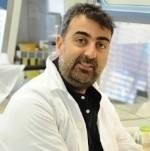 Manlio Vinciguerra
Manlio Vinciguerra
Liverpool John Moores University
Liverpool, UK
Manlio Vinciguerra is Associate Professor at the Liverpool Centre for Cardiovascular Science (LCCS, University of Liverpool & Liverpool John Moores University); and European Research Area (ERA) Chair at the Department of Stem Cell Biology and Transplantology at the Medical University of Varna, Bulgaria. His research is focused on the role of nutrition and epigenetics in cell differentiation, senescence, and in the age-associated progression of cardio-metabolic diseases.
Emeritus Editor-in-Chief
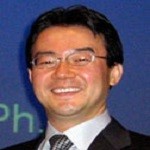 Shin-ichiro Imai, MD, PhD
Shin-ichiro Imai, MD, PhD
Dept. of Developmental Biology, Dept. of Medicine
Washington University School of Medicine
MO, USA
Shin-ichiro Imai is currently a Professor in the Department of Developmental Biology. Professor Imai's long-term goal is to achieve "productive aging," which aims to maintain good health and spirit in our later life, by understanding the spatial and temporal dynamics of our physiological system and developing nutriceutical/pharmaceutical interventions for age-associated complications.
Advisory Editors
 Andrew Jobbins
Andrew Jobbins
Andy obtained his PhD in molecular and cell biology from the University of Leicester where he studied protein-RNA and protein-protein interactions in the assembly of the spliceosome. He did his postdoctoral work at the MRC London institute of Medical Sciences where he worked on RNA processing in obesity and potential treatments with RNA therapeutics. Andy is based in the London office.
Editorial Board Members
Peter Adams, The Beatson Institute, United Kingdom
Johan Auwerx, École Polytechnique Fédérale de Lausanne, Switzerland
David Bernard, Cancer Research Centre of Lyon, France
Rafael de Cabo, National Institute of Health, USA
Brian H. Chen, The Herbert Wertheim School of Public Health and Human Longevity Science (UCSD) & FOXO Technologies, CA, USA
Manuel Collado, Health Research Institute of Santiago de Compostela, IDIS, Spain
Jorge Erusalimsky, Cardiff Metropolitan University, United Kingdom
Toren Finkel, National Heart, Lung and Blood Institute, NIH, USA
Vera Gorbunova,University of Rochester, NY, USA
Itamar Harel, The Silberman Institute, the Hebrew University of Jerusalem, Israel
Andrea Iaboni, University of Toronto and University Health Network, Toronto, ON, Canada
Pawel Kordowitzki, Nicolaus Copernicus University, Poland
Kenneth Langa,University of Michigan, USA
Tommaso Mazza, IRCCS Casa Sollievo della Sofferenza, Rome, Italy
Mark P. Mattson, Johns Hopkins University School of Medicine, USA
Jie Mei, Nanjing Medical University, China
Tohru Minamino, Niigata University, Japan
Hong Gil Nam, Institute for Basic Science, South Korea
Satchidananda Panda, The SALK Institute, CA, USA
Hideyuki Okano, Keio University, Japan
Teresa Seeman, David Geffen School of Medicine at UCLA, USA
Dorota Skowronska-Krawczyk, University of California Irvine, USA
Andrew Steptoe, University College of London, United Kingdom
Masataka Sugimoto, Tokyo Metropolitan Institute of Gerontology, Japan
Yousin Suh, Wilf Family Cardiovascular Research Institute, Albert Einstein College of Medicine, USA
Kazuo Tsubota, Keio University School of Medicine, Japan
Henriette van Praag, Florida Atlantic University, USA
Tatsuya Yamasoba, University of Tokyo, Japan
Andrew Yoo, Washington University School of Medicine, USA
Interested in joining the journal team?
If you are interested in joining the journal as an Editorial Board Member or Associate Editor, please complete this form. Associate Editors are part of the editorial team that handle manuscripts, while Editorial Board Members are regular reviewers and are consulted for ad hoc advice. We will contact you if your expertise meets the needs of the journal.
Nature Portfolio journals are committed to promoting practices that support diversity, equity and inclusion in science communication and publishing, and we strongly encourage gender, race, ethnic, geographic, career stage and other diversity in our journal teams. Our in-house staff will use your information only for the purposes of identifying new editorial team or board members. Please contact the journal by email if you would like to remove your information from these records.
Please note that we are not able to respond to all applicants.
